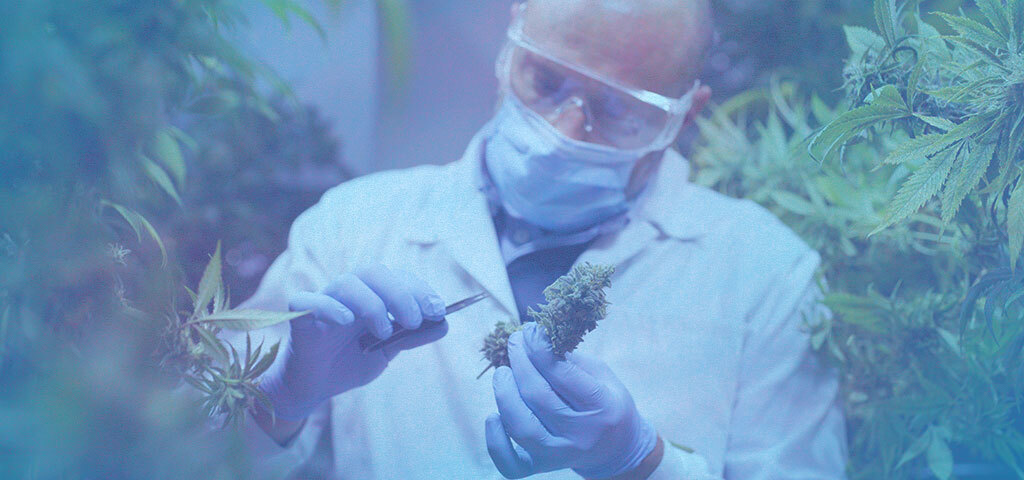As the cannabis industry matures across North America, skilled cultivation professionals remain among the most-sought-after talent in the sector.
Behind every successful marijuana retail operation stands knowledgeable growers responsible for producing consistent, high-quality cannabis that meets both regulatory requirements and consumer expectations.
If you’re looking to enter this specialized field, understanding the multifaceted nature of commercial cannabis cultivation is essential.
Here are eight critical areas of knowledge and expertise required to succeed as a professional cannabis grower in today’s competitive environment:
1. Understand state rules, compliance requirements
Cannabis cultivation remains one of the most heavily regulated agricultural activities in North America.
Each state maintains distinct regulatory frameworks governing everything from facility security requirements to pesticide restrictions and product-testing protocols.
Successful dispensary growers must:
- Obtain proper licensing and credentials specific to your jurisdiction.
- Maintain detailed documentation of cultivation processes, inventory and environmental conditions.
- Implement track-and-trace compliance systems for seed-to-sale monitoring.
- Stay current with evolving regulations that frequently change as markets mature.
Marijuana retailers value growers who not only produce exceptional cannabis but also understand regulatory constraints and documentation requirements.
Demonstrating knowledge of compliance procedures can significantly enhance your employability in this regulated market.
2. Master controlled environment agriculture principles
Commercial cannabis cultivation has evolved far beyond traditional growing methods.
Today’s cultivation operations typically utilize sophisticated controlled environment agriculture (CSE) approaches that require specialized knowledge:
- Climate control systems maintaining precise temperature and humidity parameters.
- Advanced lighting technologies, including LED spectrum manipulation.
- Automated irrigation and fertigation delivery systems.
- Environmental monitoring equipment tracking dozens of variables.
- CO2 supplementation systems for enhanced photosynthesis
Successful growers combine traditional plant knowledge with technical expertise in managing these complex cultivation environments.
Formal education in horticulture, plant science or CSE provides a valuable foundation, with cannabis-specific training building upon these fundamentals.
3. Develop extensive plant-health management skills
Preventing and addressing plant-health issues represents one of the most critical responsibilities in commercial cultivation.
With crop values often exceeding thousands of dollars per square foot, cannabis growers must develop comprehensive integrated pest management (IPM) approaches:
- Preventative biological controls, including beneficial insects and microorganisms.
- Early identification of nutrient deficiencies and toxicities.
- Strategic application of approved organic and conventional treatments.
- Diagnosis and remediation of complex plant-health issues.
The ability to maintain plant health while adhering to strict testing requirements for contaminants represents a premier skill set in the industry.
Growers with demonstrated success managing plant health within organic or restricted-input protocols are particularly valued.
4. Build a foundation in cannabis genetics, breeding
Product differentiation increasingly drives retail success, with genetics serving as the foundation for unique product offerings.
To achieve that, professional growers should develop knowledge in:
- Phenotype selection and stabilization techniques.
- Maintenance of mother plants and cloning protocols.
- Breeding approaches for developing proprietary cultivars.
- Genetic preservation methods including tissue culture.
- Terpene and cannabinoid expression in different genetic lines.
Understanding the relationship between genetics, cultivation techniques and final product attributes allows growers to consistently produce cannabis that meets specific market demands, whether focused on particular cannabinoid profiles, unique terpene combinations or visual characteristics valued by consumers.
5. Master post-harvest processing and quality control
The cultivation process extends well beyond the growth cycle, with harvesting, drying, curing and processing representing critical phases determining final product quality.
Professional growers should develop expertise in:
- Harvest timing optimization for desired cannabinoid and terpene profiles.
- Environmental control during drying and curing phases.
- Quality-assessment protocols for moisture content, terpene preservation and cannabinoid stability.
- Handling techniques minimizing trichome damage and product degradation.
- Batch documentation and testing coordination.
These post-harvest skills directly impact product shelf life, consumer experience and, ultimately, retailer profitability.
Growers who understand the science behind these processes can consistently deliver premium products commanding higher market values.
6. Develop business acumen, cost-management skills
Professional cultivation requires balancing biological ideals with economic realities.
In high demand are growers who understand the business dimensions of their role, including:
- Resource optimization strategies reducing production costs.
- Energy efficiency approaches minimizing electricity consumption.
- Labor-management techniques improving operational efficiency.
- Yield forecasting and production scheduling.
- Cost-benefit analysis for cultivation investments.
The ability to communicate how cultivation decisions impact business metrics strengthens a grower’s position as a strategic team member rather than simply a technical specialist.
This marijuana business perspective proves particularly valuable when a grower advances into management roles within cultivation operations.
7. Lean on a professional network, boost expertise
The cannabis cultivation field is evolving rapidly, with new technologies, methodologies and research continually emerging.
To keep up with this evolution, successful growers:
- Maintain active membership in professional organizations.
- Attend industry conferences and technical workshops.
- Participate in cultivation-focused online communities.
- Build relationships with agricultural suppliers and technology providers.
- Stay current with scientific literature and research developments.
These connections provide not only valuable knowledge but also career-advancement opportunities.
Growers frequently are recruited through professional networks rather than traditional job postings, particularly for senior cultivation positions.
8. Develop specialized knowledge in emerging areas
The cannabis industry increasingly values specialized expertise beyond general cultivation knowledge.
Developing deep knowledge in emerging areas can significantly enhance your professional value:
- Living soil and organic cultivation methodologies.
- Water remediation and conservation systems.
- Advanced plant-training techniques maximizing canopy efficiency.
- Specialized lighting strategies optimizing photomorphogenesis.
- Cultivation approaches for specific extract and concentrate production.
This specialized knowledge becomes particularly valuable as markets mature and consumers develop more sophisticated preferences requiring tailored cultivation approaches.
Subscribe to the MJBiz Factbook
Exclusive industry data and analysis to help you make informed business decisions and avoid costly missteps. All the facts, none of the hype.
What you will get:
- Monthly and quarterly updates, with new data & insights
- Financial forecasts + capital investment trends
- State-by-state guide to regulations, taxes & market opportunities
- Annual survey of cannabis businesses
- Consumer insights
- And more!
Importance of putting together all eight categories
Becoming a successful marijuana grower requires a multidisciplinary skill set combining traditional agricultural knowledge, technical expertise, regulatory understanding and business acumen.
By developing comprehensive capabilities across these eight areas, aspiring cultivation professionals can position themselves as valuable assets in the competitive marijuana industry landscape.
As the marijuana industry continues maturing, those combining hands-on experience with formal education and specialized knowledge will find themselves increasingly sought after by quality-focused operations committed to cannabis cultivation excellence.
(Note: AI assisted in summarizing the key points for this story.)
Medical Disclaimer:
The information provided in these blog posts is intended for general informational and educational purposes only. It is not a substitute for professional medical advice, diagnosis, or treatment. Always seek the advice of your physician or other qualified healthcare provider with any questions you may have regarding a medical condition. The use of any information provided in these blog posts is solely at your own risk. The authors and the website do not recommend or endorse any specific products, treatments, or procedures mentioned. Reliance on any information in these blog posts is solely at your own discretion.






